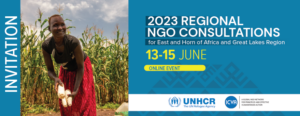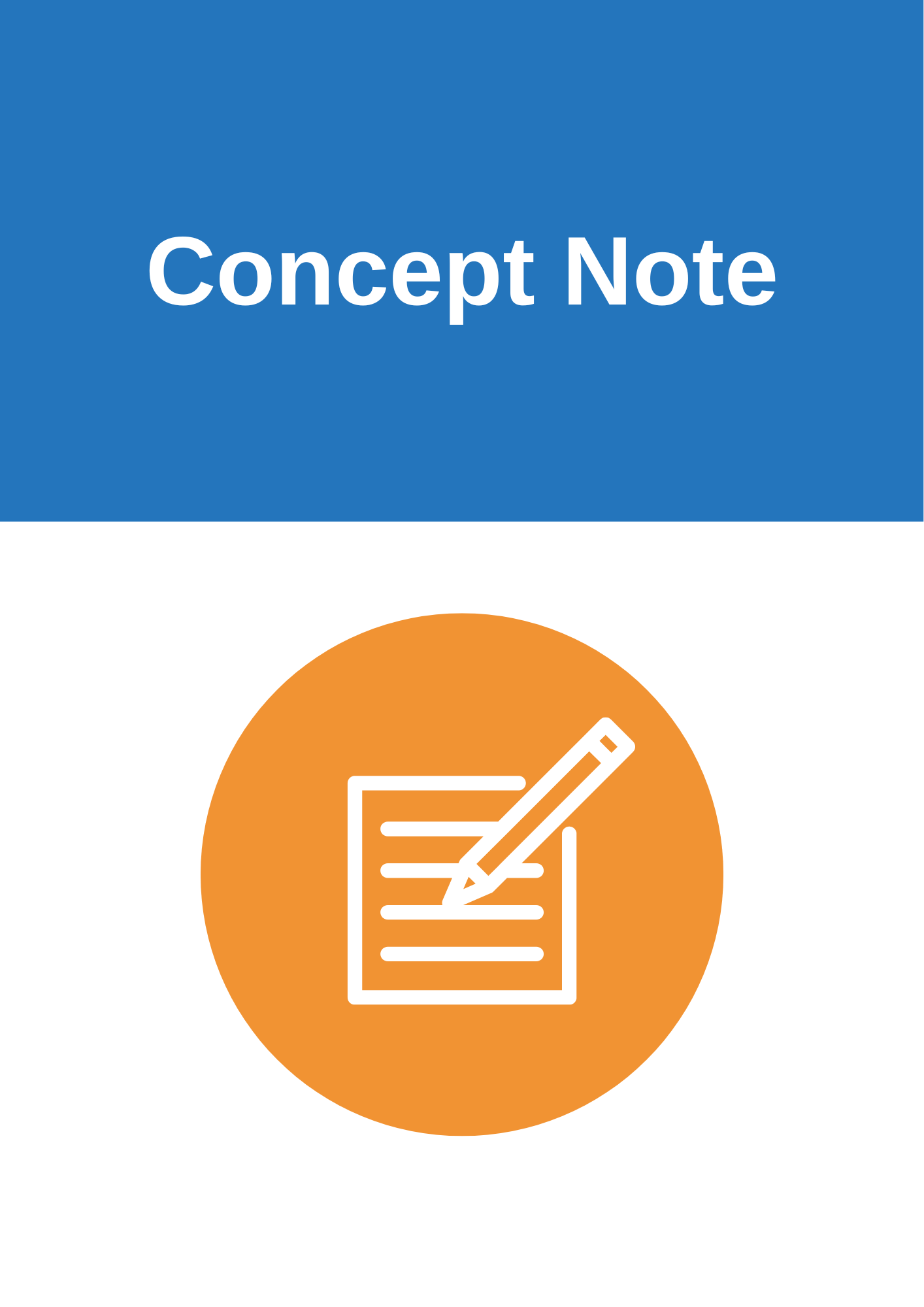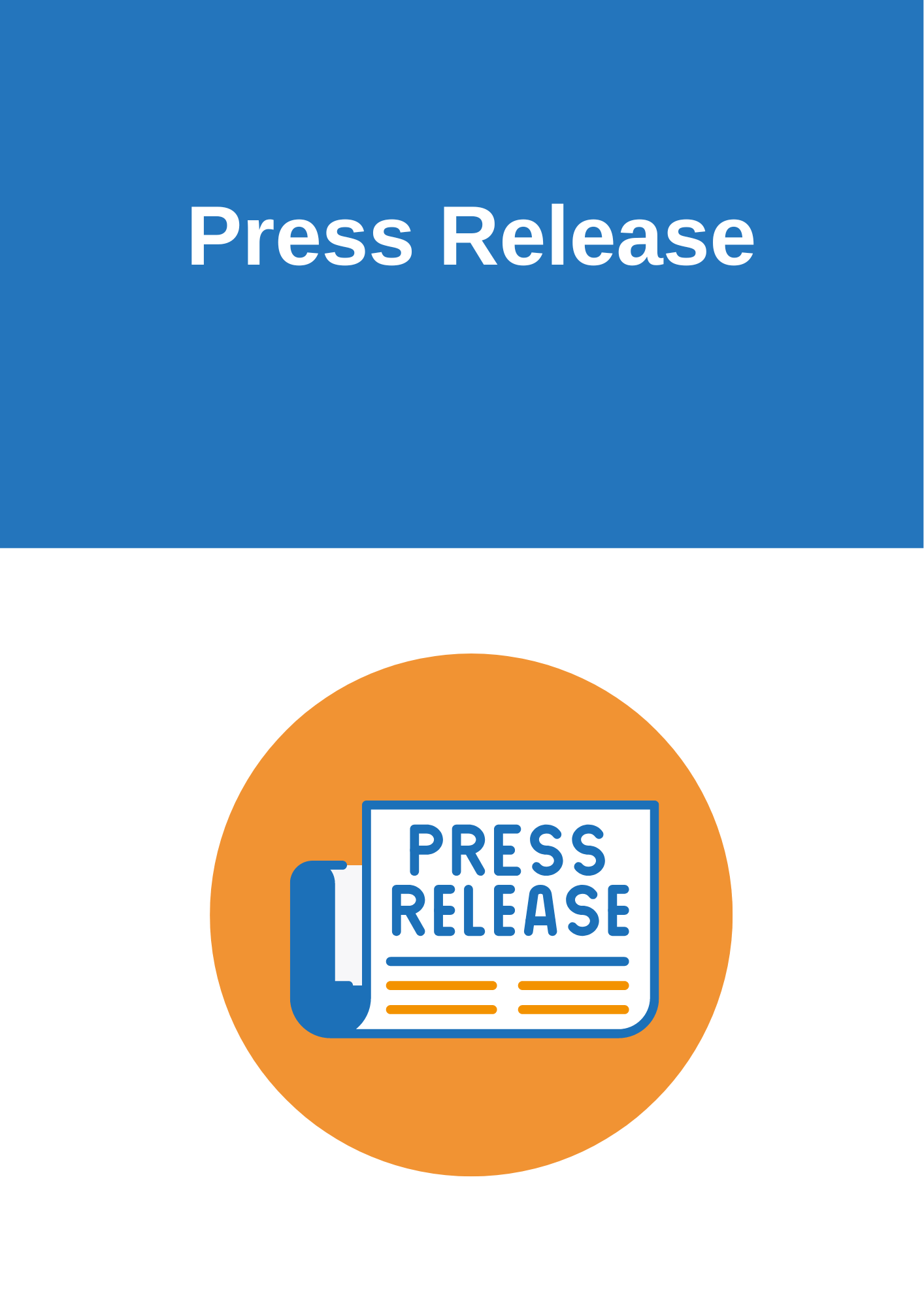-
Search -
Accessibility -
Members Login
UNHCR, ICVA
Consultations, Online
English
Forced migration
UNHCR Partnership and Coordination Service (UNHCR/PCS) is co-organizing a series of Online Consultations with NGOs, together with International Council of Voluntary Agencies (ICVA) and other NGO co-organizers.
This is a follow-up on the model of online NGO Consultations held since the onset of COVID-19 in March 2020, and will complement the UNHCR-NGO Global Consultations held every two years (next edition will be in 2024).
The overall objective of these online Consultations is to support an enabling environment for NGOs and UNHCR to exchange on operational, policy and advocacy priorities in a safe space.
Going beyond the information-sharing focus and the usual panel and Q&A format, the perspectives provided by participants aim to:
The aim of the Consultations is to:
Calendar of Consultations
This virtual event will gather staff from national and international NGOs, organizations led by displaced and stateless people, and UNHCR across the 11 countries in the East and Horn and Great Lakes region (Burundi, Djibouti, Ethiopia, Eritrea, Kenya, Rwanda, Somalia, South Sudan, Sudan, Tanzania, Uganda). The discussion will focus on approaches to current challenges and opportunities in the region and explore collaborative solutions through partnership.
The Regional NGO consultations are a build-up to the Global Refugee Forum (GRF) in December 2023 and to the Global NGO Consultations in 2024.


The second regional NGO consultations for the East and Horn and Great Lakes of Africa took place from 13 -15 June 2023. The outcomes of the consultations will inform strategic priority settings and organizational strategies of UNHCR, NGOs and other civil society actors in the region. The findings of the consultations will also be presented at the annual meeting of the UNHCR’s Executive Committee in October 2023 and inform and support the global NGO consultations to be held in Geneva in June 2024.
Day 1: Tuesday 13 June 2023
9 a.m.-12.30 p.m. EAT
Day 2: Wednesday 14 June 2023
9 a.m.-12.30 p.m. EAT
Day 3: Thursday 15 June 2023
9 a.m.-11.00 a.m. EAT
Side events
Climate displacement
Day 1: Tuesday 13 June 2023, 2-4 p.m. EAT
Gender equality
Day 2: Wednesday 14 June 2023, 2-4 p.m. EAT
Localization: Meaningful participation of refugees
Day 2: Wednesday 14 June 2023, 2-4 p.m. EAT
These consultations will be held online.
For any queries, please contact:
Find the recordings of the three-day sessions in both English and French.
📅 Virtual side events (GRF and Partnerships): 14-15 June 2023
📅 Hybrid Consultations: 14-15 September 2023
The Asia-Pacific faces multiple crises, including COVID-19’s socio-economic impact, slow progress on Sustainable Development Goals, and the vulnerability of 13.3 million refugees and displaced people.
The 2023 Asia-Pacific consultations, co-organized by UNHCR, the Asia-Pacific Refugee Rights Network, the International Council of Voluntary Agencies, and the Asia Pacific Network of Refugees, will focus on ‘Promoting Inclusion for Sustainable Solutions’ with an emphasis on gender equality.
These consultations aim to strengthen collaborative efforts between UNHCR and NGOs, aligning with the Global Compact on Refugees and addressing socio-economic inclusion challenges exacerbated by the COVID-19 pandemic. The resulting recommendations will inform strategies, implementation of sustainable solutions, and discussions at the UNHCR’s Executive Committee meeting in October 2023 and the global UNHCR-NGO consultations in Geneva in June 2024.

The 2023 UNHCR Regional Consultations with NGOs in Asia and the Pacific had the theme “Promoting Inclusion for Sustainable Solutions.” The focus was on addressing challenges and identifying opportunities for over 14.3 million forcibly displaced and stateless individuals in the region. This report offers an overview of the discussions and recommendations from the two-day event.
Click on the below link to read the report.
UNHCR and ICVA co-convened the third UNHCR-NGO Regional consultations in Southern Africa on 5 and 6 July, which brought together approximately 100 representatives from international and national refugee-led organizations, as well as from the civil society. The two-day event focused on key issues such as fostering the inclusion of forcibly displaced people in national systems and services in countries hosting them, and the role of women in conflict prevention and peacebuilding. The discussions were held virtually and aimed to provide a platform for stakeholders to deliberate on ways to better support refugees and expand their access to vital services.
Sessions:
The first session of the consultations tackled ways in enhancing sustainable solutions for the inclusion of all forcibly displaced persons in Southern Africa.
The second session explored the role of women and women’s organizations in positively impacting forced displacement situations through the prevention of violence and conflict, and peacebuilding.

The third UNHCR-NGO Regional consultations in Southern Africa took place virtually on 5 and 6 July. The discussions centered on ways to promote the rights and inclusion of forcibly displaced individuals in national policies and services, while recognizing the critical role of women in conflict prevention and peacebuilding efforts. Approximately 100 representatives from international and national refugee-led organizations and civil society participated. The consultations were co-convened by UNHCR and International Council of Voluntary Agencies (ICVA).
Click the link below to read the Press Release.
In June 2023, West and Central Africa had 13.3 million displaced and stateless people, nearly doubling since 2018. Ongoing instability, climate change-induced food insecurity, global inflation, and the Ukraine war worsen the situation. Humanitarian efforts face challenges due to shrinking budgets, relying heavily on host communities, who are also struggling. Collaboration between humanitarian organizations and civil society is crucial in addressing these growing needs.
The objectives of the 2023 regional consultations are as follows:
In collaboration with the International Council of Voluntary Agencies (ICVA), the UNHCR Regional Bureau for Europe is organizing the 2023 Regional Consultations with NGOs on 19-20 September 2023 in Geneva.
The upcoming discussions will further develop the Regional Dialogues initiated in July 2020, along with the previous consultations held at regional and global levels in 2021 and 2022.
These conversations aim to facilitate a comprehensive dialogue focused on three interconnected issues:

The Consultations for Europe are organized jointly by UNHCR and the International Council of Voluntary Associations (ICVA) and will take place in-person on 19-20 September 2023 at the International Conference Center in Geneva. The outcomes of the consultations will inform regional strategic priority-setting and organizational strategies of UNHCR, NGOs, RLOs, and other civil society actors in the Europe region including in the final preparations for the second Global Refugee Forum to be held in December 2023. The findings of the consultations will also be presented at the annual meeting of the UNHCR’s Executive Committee in October 2023 and inform and support the global NGO consultations to be held in Geneva in June 2024.
Click the below link to read the concept note.
The 2023 Regional Consultations with NGOs will be held in person at the Centre International de Conférences Genève (CICG). Attendance is limited by space constraints.
These Consultations are open to NGOs headquartered in Europe, with regional, national, and/or local geographical coverage. Organizations led by forcibly displaced and stateless persons are strongly encouraged to register.
Due to the limited space, priority will be given to organizations that work on forced displacement in Europe and:
Selected organizations based on the priorities above will receive a confirmation email.
Davos-style conversation between UNHCR and ICVA senior management on the overarching themes of the Regional Consultations.
This session will focus on challenges and opportunities for socio-economic inclusion of forcibly displaced and stateless people in Europe by providing an overview of UNHCR’s inclusion priorities and initiatives in the Europe region, presenting existing data, discussing legal and de facto inclusion barriers and how these can be addressed, and identifying opportunities for jointly strengthening effective inclusion.
Concrete measures that strengthen social cohesion and peaceful coexistence between refugees and host communities, and between different refugee communities, are critical to promoting the effective inclusion of refugees in their host communities. How do we pass messages that combat xenophobia and misinformation and promote true cohesion and the building of social ties, especially in situations where resources are scarce? How can we de-politicize and de-polarize debates about refugees and asylum, and create a sense of common objectives and shared identity?
This session will demonstrate how civil society organizations can accompany forcibly displaced persons and government social protection agencies to better ensure access to national social protection benefits and services.
This session will the draft content of UNHCR’s Operational Guidelines on Localization, gather inputs and feedback from the participants, and collect ideas on practical ways UNHCR can partner with local and national NGOs in our operations.
This session will present the business case for forcibly displaced and stateless persons’ access to financial and business development services and discuss how NGOs and RLOs can support financial inclusion.
This plenary will focus on discussing how to support forcibly displaced and stateless women to draw on their skills and experience to contribute to their host communities while addressing gender-specific barriers hindering effective and equal access to decent work, education and social services and mitigating protection risks. Good and emerging practices on direct support to forcibly displaced and stateless women, advocacy for inclusion and generating evidence-base will help guide the discussion on the way forward.
This plenary – led by RLOs – will focus on how refugees promote and are key actors of their own inclusion into national systems and the barriers they face in their work. How can this critical mechanism be strengthened? How can their engagement be further supported to impact decision-making? What forms of cooperation and partnership with other stakeholders are refugee-led organizations looking for and how do we create them?
This session will focus on efforts by NGOs and RLOs to overcome barriers to decent work for forcibly displaced and stateless persons, showcasing multi-stakeholder approaches, alliances with the private sector, and good and emerging practices.
This session will focus on the importance of refugee education. Participants will discuss arguments for inclusion of refugee children in national education systems and look at best practices in refugee education.
The participation of refugees in policies and programs that have an impact on their lives – including decision-making processes – is critical to effective inclusion. Such processes give refugees the opportunity to be actively involved in discussions and decisions that impact their daily lives, including on access to education, health services, work and housing. This session will explore good practices in this regard, with concrete examples from across Europe.
This session will be an opportunity for NGOs and RLOs to learn more about UNHCR’s Special Grants Agreement and Innovation Award as two concrete opportunities for funding and capacity-sharing, including through the experiences of several organizations that have engaged in these mechanisms.
In the lead-up to the Global Refugee Forum (GRF) in December 2023, this session aims to consult NGOs on the preparations made to date and opportunities for engagement, including practical support to develop and submit pledges. It will also be an opportunity to hear from NGOs on the progress they have made in implementing past pledges as well as their plans for the upcoming GRF.
This session will give an update on UNHCR’s programming and partnership reforms including new corporate systems that will be introduced in the second half of 2023 and early-2024. The session also includes a short introduction to UNHCR’s new Partnership framework agreements in the context of multi-year strategic planning.
For any queries please contact: